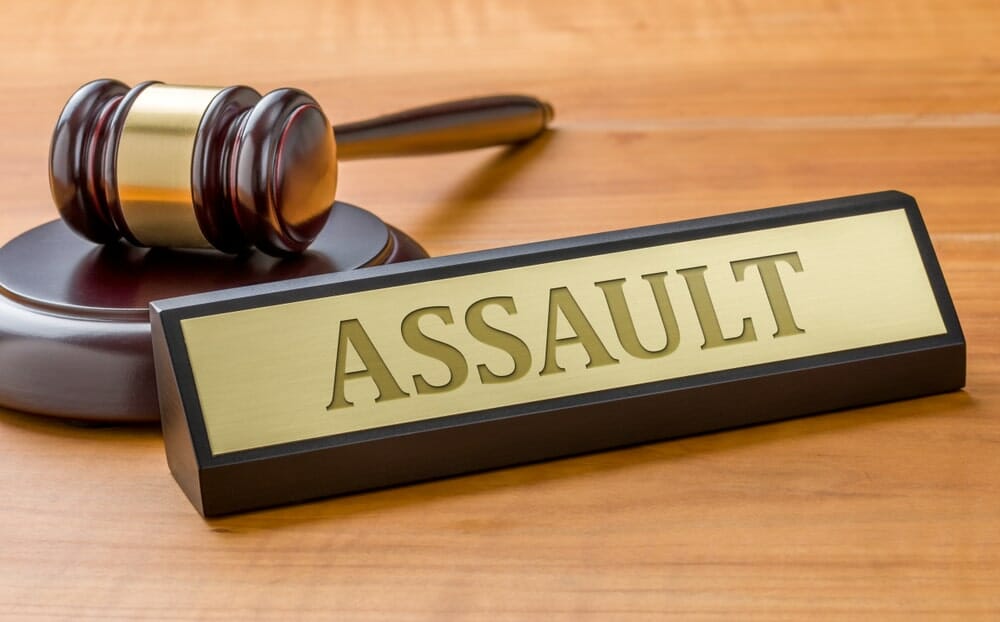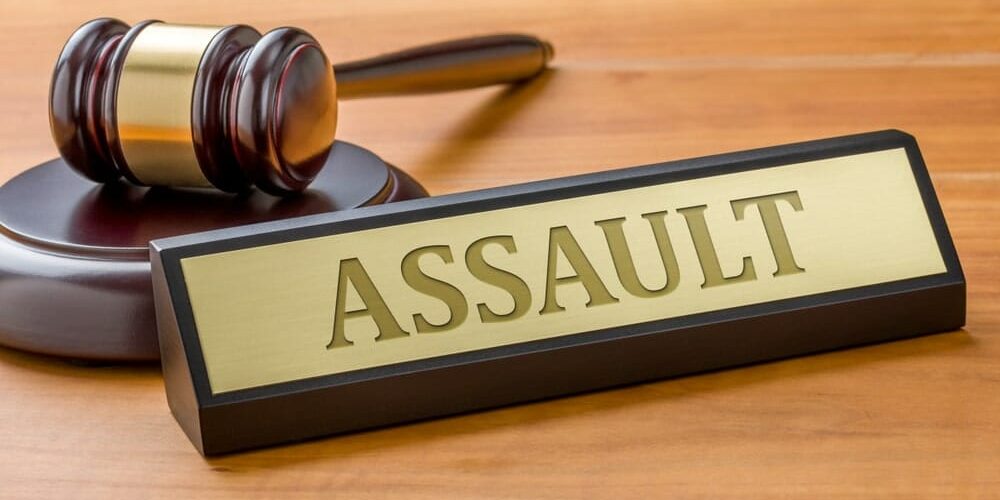Have You Been Charged With Common Assault/Assault?
Facing assault charges can be daunting, given the complexity of legal statutes and the severe consequences they entail. At WN Legal, our team of dedicated assault lawyers is equipped to guide you through the intricacies of the legal system, offering expert representation and striving for the most favourable outcomes.
Our assault lawyers can help you with assault charges such as:

What is Common Assault/Assault?
Under s. 222 of the Criminal Code Compilation Act 1913 (WA) (“Criminal Code”), the definition of assault is wide and can encompass many acts. It includes acts where a person:
- Strikes, touches, or moves a person.
- Applies force of any kind to the person of another, either directly or indirectly, without their consent, or with their consent if the consent is obtained by fraud.
- By any bodily act or gesture, attempts or threatens to apply force of any kind to the person of another without his consent, under such circumstances that the person making the attempt or threat has actually or apparently a present ability to effect his purpose, is said to assault that other person.
The term ‘applies force’ includes the application of heat, light, electrical force, gas, odour, or any other substance or thing which has been applied to such a degree as to cause injury or personal discomfort.
What is Aggravated Assault?
Under the s. 313 (1)(a) of the Criminal Code, an aggravated assault occurs if a person commits an offence in circumstances of aggravation or in circumstances of racial aggravation.
Circumstances of Aggravation Means Circumstances in Which:
- The offender is in a family and domestic relationship with the victim of the offence; or,
- A child was present when the offence was committed; or,
- The conduct of the offender in committing the offence constituted a breach of an order made or registered under the Restraining Order Act 1997 (WA) or to which that Act applies or;
- The victim is of or over the age of 60 years old.
Assault Occasioning Bodily Harm
Assault Occasioning Bodily Harm (AOBH) is a serious offence under section 317 of the Criminal Code Act Compilation Act 1913 in Western Australia. It involves an assault that results in bodily harm to another person. This type of offence is treated seriously by the courts due to the physical and psychological impact on the victim.


Assault with Intent
Under Section 317A of the Criminal Code Act Compilation Act 1913 (WA), it is a criminal offence to assault another person with any of the following intentions:
- To commit or facilitate the commission of a crime (Section 317A(a)).
- To cause grievous bodily harm to any person (Section 317A(b)).
- To resist or prevent the lawful arrest or detention of any person (Section 317A(c)).
Is Assault an Offence?
Unless it is authorised or justified by law, assault is unlawful.
Maximum Penalties
The maximum penalty for an assault/common assault charge is imprisonment for 18 months and a fine of $18,000.
The maximum penalty for an aggravated assault charge is imprisonment for 3 years and a fine of $36,000.
Penalties for Assault with Intent
District Court Penalties
If the offence is heard in the District Court, the maximum penalties include:
- Five years’ imprisonment for offences without aggravating circumstances.
- Seven years’ imprisonment if the offence occurs in circumstances of aggravation (Section 317A).
Magistrates’ Court (Summary Conviction) Penalties
For cases dealt with summarily in the Magistrates’ Court, the penalties depend on the severity and circumstances:
- Two years’ imprisonment and a fine of $24,000 for standard offences (Section 317A(b)).
- Three years’ imprisonment and a fine of $36,000 if circumstances of aggravation are present (Section 317A(a)).
Assault Occasioning Death
In Western Australia, the offence of “assault occasioning death” is defined under Section 281 of the Criminal Code Compilation Act. A person commits this crime if they unlawfully assault another person who subsequently dies as a result of the assault.
The maximum penalty for this offence is imprisonment for 20 years. It’s important to note that a person can be found guilty under this provision even if the death of the victim was not reasonably foreseeable.
Offence of Wounding
The offence of unlawful wounding is defined as causing injury to another person by breaking both layers of the skin without lawful excuse. This can be done by inflicting a cut, burn, or stab wound, with or without a weapon. The injury caused to the victim does not have to be severe or long-lasting.
Unlawful wounding is contained in section 301 of the Criminal Code Act Compilation Act 1913 and is punishable by a maximum penalty of imprisonment for five years. If the offence is aggravated, the maximum penalty is imprisonment for seven years.
Grievous Bodily Harm
Grievous bodily harm is defined as any bodily injury that endangers or is likely to endanger the victim’s life, or causes or is likely to cause permanent injury to the victim’s health. This includes serious burns, broken bones, and permanent disabilities, such as loss of hearing or loss of use of a limb.
The Criminal Code Act Compilation Act 1913 specifies that causing grievous bodily harm is punishable by imprisonment for up to 10 years, and this can increase to 14 years under certain circumstances, such as when the offence is committed during aggravated home burglary or while stealing a motor vehicle.
What Should I Do if I Am Charged With Assault?
We recommend that you contact WN Legal’ criminal defence lawyer for further advice on whether there are any defences possible, or for further guidance on what you can do.
You do not have to participate in a Video Recorded Interview and in general, you have a right to silence, and you do not have to answer questions from the police. However, there are some exceptions to this. The police should make it clear when the law requires you to provide an answer. Some questions that you must answer include:
- Name
- Address
- Date of Birth
If it is requested, you do have to submit to fingerprinting, being photographed and DNA sampling.

What Possible Defences Can I Use?
A defence justifies your conduct or gives you an excuse as to why your conduct was not unlawful. Below are some defences which may apply to your circumstances:
- Self Defence
- Provocation
- Duress
- Accident
- There was consent to the ‘application of force’
- Insanity
- Emergency
- Identification
- Lawful Authority
- Dispute of Relevant Facts
- Dispute of Identity
- Dispute on the technicalities of the law associated with this charge
We recommend that you contact WN Legal’s assault lawyer Perth for further advice on whether there are any defences possible, or for further guidance on what you can do.

Your Assault Lawyers at WN Legal
WN Legal is one of the top boutique law firms in the Perth area. We have a skilled team of Assault Lawyers who will guide you through the legal system. Our team has assisted hundreds of clients with their assault charges, and we can help you, as well.
Our years of experience defending clients facing assault charges is one of our greatest strengths. Because we understand the courts and methods involved in defending assault charges, WN Legal will make sure your circumstances are understood and that you get the best possible outcome.
Kryan & Khew are extremely compassionate and professional. They are very thorough and don’t miss anything, I was super impressed with their genuine personalities while they remained professional and businesslike throughout my dealing with them. I would not hesitate to recommend my family, friends, and business clients to them.
I was recently charged with aggravated common assault. WN Legal represented me from day one till the case was finalized. They are affordable, professional, knowledgeable, and sensitive. They kept me updated on the progress of the case. Despite the seriousness of the charge the outcome was the best I could expect – a fine and spent conviction. I would recommend WN Legal for all your legal problems.
“Khew and Aimee were both so amazing and helpful, Khew ran through everything to make sure we understood everything that had to happen and how things would work. I had Aimee with me on the big day and she was super kind and made you feel so comfortable like a best friend was with you, no nerves at all! She even walked me to the car to make sure I was safe, and we came away with a positive outcome 😀 win-win defiantly recommend this company 5 stars.”
“WN Legal are far superior to any legal firm we have dealt with before and they have set the bar so high we doubt we will ever find a legal firm as dedicated and professional.
We dealt mainly with Kyran who was readily accessible and exceeded our expectations. We also found the rest of the team at WN legal to be just as helpful, friendly, and genuine.
We highly recommend WN Legal to anyone.
If we could leave a rating higher than 5 stars we would, Mark and Marina”
“Absolutely the best service. I was treated in a professional manner and when i was about to give up Khew turned around and said i am not ready to give up fighting for you yet. Some of the best words said to me in awhile. Thank you Khew for all your help and support i highly recommend this law firm.”
FAQs
If I am charged with assault, do I have the right to refuse to speak to the police?
While you have the right to silence, you must tell officers your name, address, and date of birth. You do not need to share details of the assault or try to explain your behaviour. Your lawyer should be present when you make any statements to police officers.
Can I refuse to answer questions during an interview with the police?
You CAN refuse to answer questions while in custody. Doing so will not “make you look guilty” or hinder your case in any other way. It is advisable that if you decline to comment on some questions, you refuse to comment on all of the questions. Otherwise, a judge or jury may be confused about why you chose to answer specific questions and not others.
What should I do if I am arrested for assault?
Try to remain as calm as possible if you are taken into police custody. Do not behave belligerently or combatively because these actions could potentially become further charges of resisting arrest or assaulting a police officer. As soon as possible, contact your assault lawyer at WN Legal. We will help you through your ordeal.
Can you drop an assault charge?
In Western Australia, the decision to drop an assault charge ultimately lies with the police or the prosecution. However, there are certain circumstances where the victim of the assault may have the ability to withdraw their complaint, which could potentially lead to the charge being dropped. The decision to discontinue a criminal charge lies with the prosecution. They will also consider other issues including:
- Any concessions made by the accused;
- Any direct evidence available to infer that the accused has committed an offence or a crime;
- Any circumstantial evidence that can lead to the identity, and/or of the accused;
- Any technicalities that can affect the prosecution or defence’s case.
Can you go to jail for an assault charge?
When charged with assault, the maximum penalty for assault/common assault is imprisonment for 18 months and a fine of $18,000. When aggravated, the penalty is increased to 3 years of imprisonment in jail and a fine of $36,000.
A jail term is possible but not inevitable. It does depend on the circumstances of the case.
Does an assault charge stay your record?
If you are convicted of an assault charge, a conviction will automatically be recorded at the time of the plea, or if you are found guilty of the charge after trial.
There are three notable instances where you can ask for the conviction to be spent. You can make an application for a spent conviction order:
- At the time of sentencing;
- If you fail at your application for a spent conviction, then an appeal within 21 days;
- If you fail at all of the above, then 10 years from the time of the offending.
- If it is a summary offence, and in limited circumstances, an application to the Commissioner of the WA Police;
- Otherwise, an application to the District Court, or Supreme Court.
Do I need a lawyer for an assault charge?
Although this can depend on the complexity of the case and personal preference, an assault charge in WA can carry significant penalties, including imprisonment and fines. A lawyer can help you understand the potential consequences and work towards the best possible outcome for your case, including available defences.
An assault lawyer can also represent you in court, negotiate with the prosecution, and ensure that your rights are protected throughout the entire legal process.
If you decide to hire a lawyer for your assault charge in Western Australia, consider choosing one with experience in criminal law and assault charges like WN Legal.
Book An Appointment
We have online consultation available. Leave your enquiry below and a member of our friendly team will be touch shortly.
WN Legal – Perth’s Leading Law Firm for Assault Charges
As a boutique practice, we provide highly personalised legal services to individuals looking to get a matter dealt with quickly and effectively by our assault lawyers.
Whether you’re facing charges or have just been informed by the Police that they want to “have a word with you”, you should know your rights and what they are looking to do with your case.
In most instances, your decision to make admissions can have a serious bearing on your matter. Our Perth assault defence lawyers are available to discuss your situation and your options.

